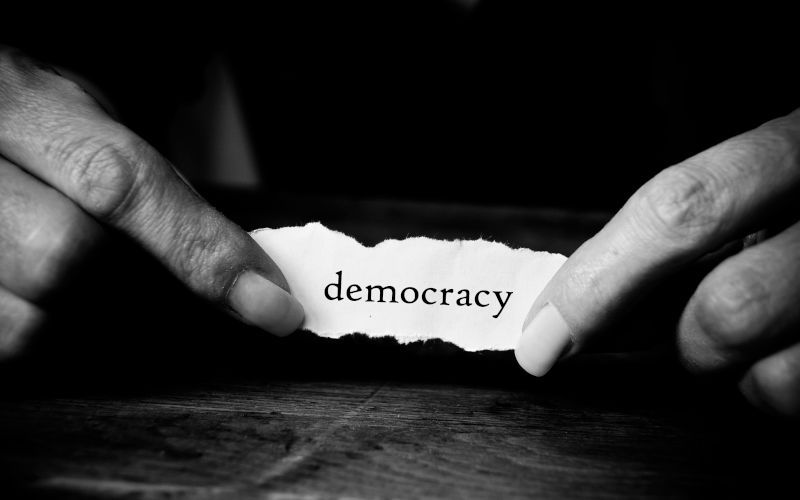Populism and the fight for democracy
January 28, 2024
Liberal democracy is facing its most perilous time since the rise of fascism a century ago. Between the Global Financial Crisis and now, the number of liberal democracies has fallen by a third, as the drift towards populist authoritarian leadership gathers pace.
Two visceral emotions drive the affairs of democratic societies: hope and fear. Of the two, the more potent is fear.
Its what divides the two sides of political life. The method of progressive politics is to exploit the communitys need to feel hope; for conservatives, the way to power is to trade in fear.
Different times favour different sides. When we feel reasonably comfortable and optimistic, hope and its corollary, generosity, become possible. Right now, though, the times favour fear.
The world is waiting for the possible and perhaps likely return of Donald Trump to the US presidency. If he returns to the White House, what remain of Americas already-battered liberal democratic credentials are unlikely to survive.
In many other democracies, right-wing populist leaders target imagined privileged elites and dangerous outsiders merchandising fear to bump them into power. France, Germany, Poland, Hungary, Sweden, the Netherlands and Italy are under threat or have already succumbed.
This slump, often called the democratic recession, is marked also by countries outside this list becoming less democratic and less liberal. The Carnegie Endowment for International Peace has identified 27 countries that became less democratic in just seven years, from 2015 to 2022.
The trend coincides with a rising perception of disadvantage and peril throughout the western democracies since the global financial crisis and, particularly, the pandemic and its economic aftermath. When people are fearful, they are much less likely to be generous to others. These are the conditions that suit authoritarian populists Trump, Johnson, Le Pen, Meloni, Dutton.
In Australia, a natural experiment has demonstrated how this works. The same-sex marriage vote in 2017 was carried overwhelmingly: early support (around 60%) help up throughout the campaign. In the Voice referendum in 2023, there was also consistently high support (around 65%) but this eroded, producing a result that was a mirror-image of the 2017 experience.
Each time, well-funded right-wing populist campaigns were marshalled, run mostly by the same people. They failed the first time and succeeded the second not because the issues were so different but because the country itself has changed.
The episode proved that nowhere is immune from populist, destructive and potentially authoritarian politics. Yes, it could happen here.
Read the full article on Martyn Goddards The Policy Post, here.

